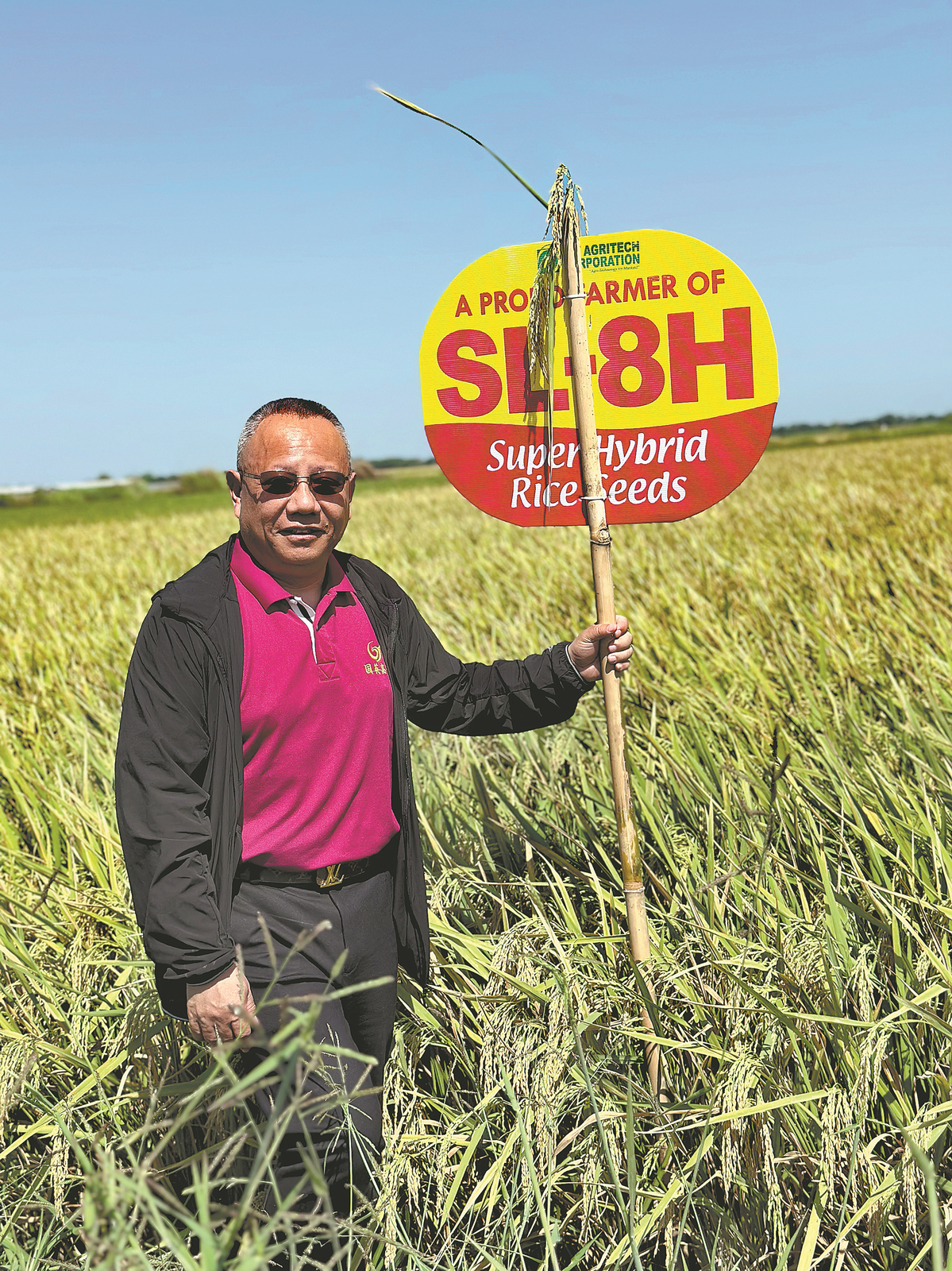Hybrid rice market expands in Asia
By Liu Kun in Wuhan and Li Menghan in Beijing | China Daily | Updated: 2024-04-23 07:50

The increased yields of a hybrid rice strain developed in China have helped countries participating in the Belt and Road Initiative to bolster their food security.
"Malaysia has expressed the pressing need to introduce Chinese hybrid rice seeds and planting techniques to alleviate local food shortages," Ding Junping, the head of Wuhan Guoying Seed Corporation, said at a national agricultural enterprises forum in Wuhan, the capital of Hubei province, early this month.
He said Honglian hybrid rice has gained recognition in South Asian and Southeast Asian countries such as Pakistan, Indonesia, the Philippines, Bangladesh and Vietnam.
Honglian hybrid rice was developed in the 1970s by Zhu Yingguo, who is an academician of the Chinese Academy of Engineering, dean of the life sciences institute at Wuhan University and the company's chief scientist.
It is of excellent quality, resistant to diseases and pests and can tolerate high temperatures, all useful characteristics in BRI countries.
"Last year, trial plantings of various strains developed by the company, such as Honglian hybrid rice and the water-saving, drought-resistant rice, were carried out in Sarawak and Sabah in Malaysia," Ding said.
"The yield reached 11.08 metric tons of grain per hectare, representing an increase of more than 120 percent compared to local varieties and garnering high recognition from the local governments, agricultural authorities and farming communities."
A delegation from Sarawak's agricultural department visited the company in January for technological exchanges and business negotiations.
Ding said that a cooperation agreement has been reached to expand the Malaysian market. The company plans to export 300 to 500 tons of rice seeds this year and 1,000 tons next year. The export volume is scheduled to reach 3,000 tons in three years, earning more than $10 million.
In the Philippines, the export volume of hybrid rice seeds has reached 10,000 tons a year, generating earnings of $30 million, he added.
























